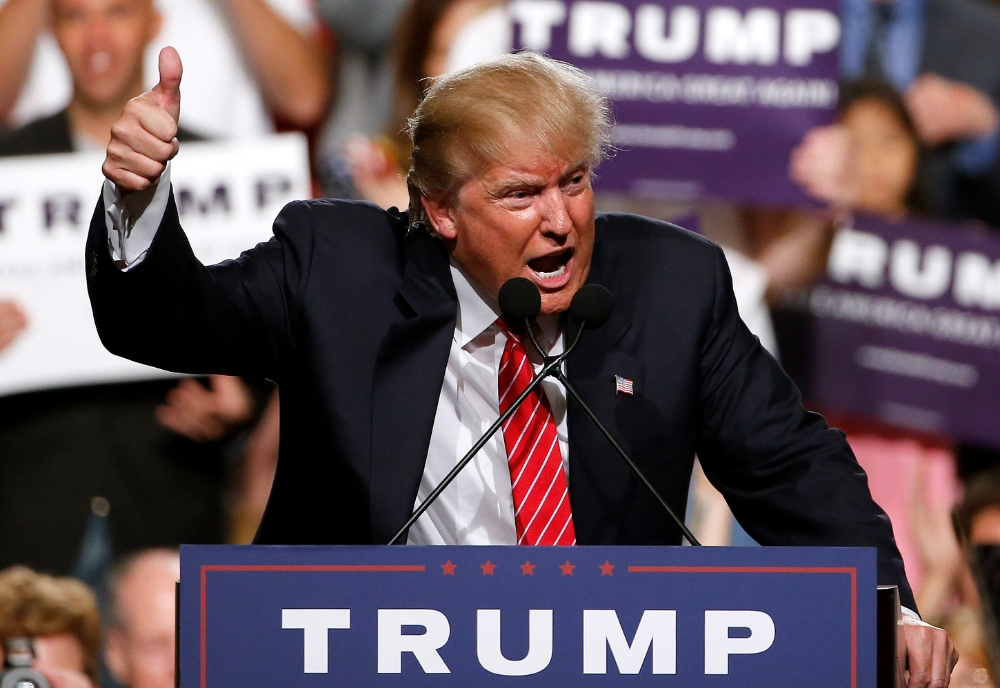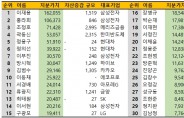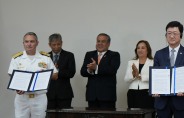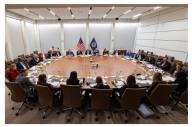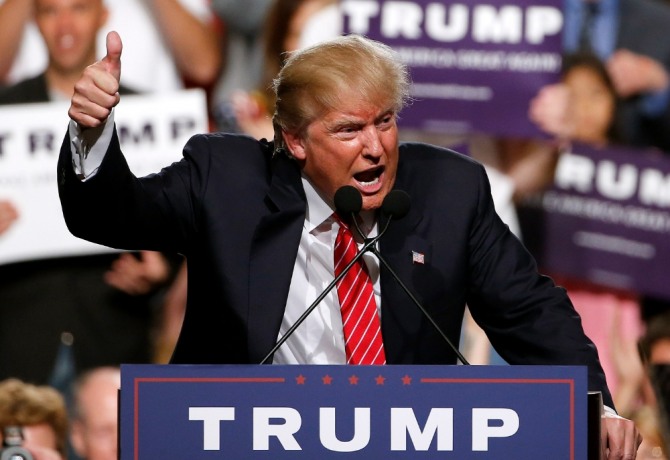 이미지 확대보기
이미지 확대보기대통령의 헌법상 고유 권한으로 국경장벽 건설을 강행하겠다는 것이다.
트럼프 국가비상사태 선포 이후 미국 뉴욕증시 다우지수 나스닥지수 S&P 500 지수가 요동치고 있다.
뉴욕증시 다우 1.74%↑ 상승 이후 다시 폭락 우려가 나오고 있다
일본 도쿄증시 닛케이지수 중국증시 상하이지수 중국위안화 환율 일본엔화 환율도 트럼프 국가비상사태 선포의 영향권에 들었다.
트럼프 국가비상사태 선포는 다음주 코스피 코스닥 원달러환율 국제유가 국제 금값에도 영향을 줄것으로 보인다.
다음은 미국의 국가비상사태 선포 규정
The Act empowers the President to activate special powers during a crisis but imposes certain procedural formalities when invoking such powers. The perceived need for the law arose from the scope and number of laws granting special powers to the executive in times of national emergency. Congress can undo a state of emergency declaration with either a joint resolution and the President's signature, or with a veto-proof (two-thirds) majority vote.[1] Powers available under this Act are limited to the 136 emergency powers Congress has defined by law.[2]
The legislation was signed by President Gerald Ford on September 14, 1976.[3] As of February 2019, 59 national emergencies have been declared, and the United States is under 31 continuing declared states of national emergency.[1][4]
The International Emergency Economic Powers Act, enacted in 1977, falls under the National Emergencies Act, which means that an emergency declared under that Act must be renewed annually to remain in effect.
The first President to issue an emergency proclamation[5][6] was Woodrow Wilson, who on February 5, 1917, issued the following:
“ I have found that there exists a national emergency arising from the insufficiency of maritime tonnage to carry the products of the farms, forests, mines and manufacturing industries of the United States, to their consumers abroad and within the United States[7] ”
This proclamation was within the limits of the act that established the United States Shipping Board.
Starting with Franklin D. Roosevelt in 1933, presidents asserted the power to declare emergencies without limiting their scope or duration, without citing the relevant statutes, and without congressional oversight.[8] The Supreme Court in Youngstown Sheet & Tube Co. v. Sawyer limited what a president could do in such an emergency, but did not limit the emergency declaration power itself. A 1973 Senate investigation found (in Senate Report 93-549) that four declared emergencies remained in effect: the 1933 banking crisis with respect to the hoarding of gold,[9] a 1950 emergency with respect to the Korean War,[10] a 1970 emergency regarding a postal workers strike, and a 1971 emergency in response to inflation.[11] Many provisions of statutory law are contingent on a declaration of national emergency, as many as 500 by one count.[12] It was due in part to concern that a declaration of "emergency" for one purpose should not invoke every possible executive emergency power, that Congress in 1976 passed the National Emergencies Act.
Presidents have continued to use their emergency authority subject to the provisions of the act, with 42 national emergencies declared between 1976 and 2007.[13] Most of these were for the purpose of restricting trade with certain foreign entities under the International Emergency Economic Powers Act (IEEPA) (50 U.S.C. 1701–1707).
Termination of presidential authority
A prior Senate investigation had found 470 provisions of federal law that a President might invoke via a declaration of emergency.[14] The Act repealed several of these provisions and stated that prior emergency declarations would no longer give force to those provisions that remained. Congress did not attempt to revoke any outstanding emergency declarations per se, as these remained the President's prerogative under Article II of the Constitution.[15]
Procedure for new emergencies and rescinding emergency declarations
The Act authorized the President to activate emergency provisions of law via an emergency declaration on the conditions that the President specifies the provisions so activated and notifies Congress. An activation would expire if the President expressly terminated the emergency, or did not renew the emergency annually, or if each house of Congress passed a resolution terminating the emergency. After presidents objected to this "Congressional termination" provision on separation of powers grounds, and the Supreme Court in INS v. Chadha (1983) held such provisions to be an unconstitutional legislative veto,[16] it was replaced in 1985 with termination by an enacted joint resolution. A joint resolution passed by both chambers requires presidential signature, giving the president veto power over the termination (requiring a two-thirds majority in both houses in the case of a contested termination.)[17]. The Act also requires the President and executive agencies to maintain records of all orders and regulations that proceed from use of emergency authority, and to regularly report the cost incurred to Congress.
National Emergencies Act 즉 국가비상사태는 미국 헌정 역사상 58번 선포됐다.
트럼프 대통령은 한국시간 16일 국가비상사태 선포문에 서명햇다.
국가비상사태 선포로 트럼프 대통령은 의회 승인을 거치지 않고 예산을 재배정할 수 있게 된다.
국방부와 군사 건설 사업 예산 36억 달러, 마약단속 예산 25억 달러, 재무부의 자산 몰수 기금 6억 달러 등 70억 달러가 국경장벽 건설 예산으로 전용될 수 있다.
민주당은 트럼프 대통령의 국가비상사태 선포에 강력히 반발하고 있다.
국가비상사태는 1976년 만들어진 국가비상사태법(National Emergencies Act)에 따른 것이다.
김대호 소장 / 경제학 박사 tiger8280@g-enews.com












